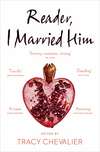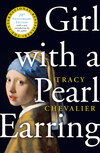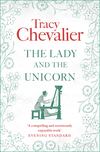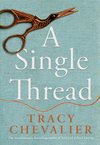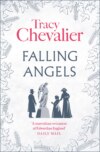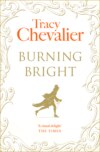Читать книгу: «Reader, I Married Him», страница 2
LUXURY HOUR

SARAH HALL
IT WAS THE LAST week of the season and the lido was nearly deserted. She arrived at the usual time, changed into her suit, left her clothes in a locker and walked out across the chlorine-scented vault. The concrete paving had traces of frost in the corners and was almost painful on the soles of her feet. Light rustled under the blue rectangular surface. She climbed down the metal ladder and moved away from the edge without pausing. In October, entering the unheated pool was an act of bravery; the trick was to remain thoughtless. The water was coldly radiant. Her limbs felt stiff as she kicked and her chin burned. At the halfway mark she looked up at the guard, who was sinking into the fur hood of his parka. Nothing in his demeanour gave the impression of a man ready to intervene, should it be necessary. She took a breath, put her head underwater, surfacing a few strokes later. She was awake now, her heart jabbing. She turned on to her back, rotated her arms. The clouds above were grey and fast. Rain later, perhaps.
She swam twenty lengths, by which time she was warm and the idea of autumn seemed acceptable, then rested her head on the coping and caught her breath. The pool slopped gently against her chest. Light filaments flashed and extinguished in the rocking fluid. In summer it was hard to swim, hard to find the space; the pool was choppy, kids bombed in at the deep end, and the water washed out over the edges, soaking towels and bags. Barely an inch between sunbathers. Not many came after early September. But the old couple with rubber caps she always saw on quieter mornings were in the next lane, swimming side by side: her chin tipped high, his submerged. She followed in their wake. They nodded hello when she reached the end, and she smiled. She climbed out. Her breasts and thighs were blotched red with the chill and exertion.
In the changing room she tried not to look at her midriff in the mirrors, the crêping and the sag. She showered and dressed, and went into the poolside café. It was busy as usual. There were prams parked between tables, people working on laptops and reading books. The debris of muesli, pastries and napkins was strewn about. On the walls were photographs from the thirties, pictures of young women diving from the high board, now dismantled, or posing with their hands on their hips. The grace, the vivacity of another era: dark mouths, straight teeth, a kind of ebullient confidence. The scenes looked pre-industrial – open sky, birds in vee formations overhead. The five-storey civic building opposite the park hadn’t been built. London had not yet arrived.
The man behind the counter leaned away from the growling espresso machine and predicted her order.
Latte?
Yes, please.
There was an immaculate row of silver rings in his bottom lip.
Bring it over.
She took a seat by the window, in the corner, and watched the old couple emerge from the lido. Their stamina was far greater than hers – an hour’s swimming at least. They stood dripping and chatting for a moment as if unaffected by the smart breeze. The woman’s legs were thin, but strung with muscle. Her belly was a tiny mound under the swimming costume. The man had a buckled torso, a white beard. There was a vast laparotomy scar up his abdomen. They were the same height and seemed perfectly suited. She wondered if they’d evolved towards their symmetry over the years. The couple parted and went towards separate changing rooms. He walked awkwardly, favouring one hip. In the pool he swam well. Occasionally she’d seen his sedate, companionable breaststroke morph into an energetic butterfly.
There was no one left in the lido. The guard rested his head on his hand, eyes closed, the whistle attached to his wrist hanging in the air. The surface of the pool stilled to a beautiful chemical blue.
Her coffee arrived. She opened a packet of sugar and poured it. She shouldn’t be taking sugar – the baby weight was still not coming off – but hadn’t ever been able to drink coffee without. She sipped slowly. The pool was hypnotic; something about the water was calming, rapturous almost. Time here, after swimming, always felt inadmissible to her day. She would linger, ignore her phone. Often she had to race round the shops to be back in time for the sitter. “Luxury hour”, Daniel called it, as if she were indulging herself, but it was the only time she had without the baby.
After a while she went to the counter, paid and left. She began to walk through the park. The breeze was strengthening, the leaves of the trees moving briskly. There were some kids playing cycle polo on one of the hard courts, wheeling about and whacking the puck against the metal cage. Dogs bounded across the grass. She passed the glass merchant’s mansion and the old glassworks, both hidden under flapping plastic drapes and renovation scaffolding. She’d hated the city when she and Daniel had first arrived. She’d missed the Devon countryside, the fragrance of peat and gorse, horses with torn manes, the lack of people. But it was what one did – for the jobs, for the culture; London’s sacrificial gravity was too strong and it had taken them. Discovering the park had changed everything, and the nearby property was just about affordable.
She passed through the rank of dark-trunked sycamores. Beyond was the meadow. Its pale brindle stirred in the wind, belts of grass lightening and darkening. The field had been resown after a local campaign by the Friends of the Park. For a century it had been a wasteland – the horses used for pulling the carts of quartz sand to the glassworks had overgrazed it. Dust, cullet and oil from the annealing ovens had polluted the soil. Now it was lush again; there were bees and mice, even city kestrels – she’d seen them tremoring above the burrows, stooping with astonishing speed. There was a dry, chaff-like smell to the meadow after the summer; the grasses clicked and hushed. The enormous, elaborate spider webs of the previous month had broken apart and were drifting free.
A man was walking down the scythed path towards her. She stepped aside to let him pass but he stopped and held out his hand.
Alex.
She looked up. For a second she didn’t recognise him. He had on a tie and a suit jacket. The planes of his face came into focus. The heavy bones, the irises, with their concentration of colour, no divisions or rings. He was a little older, his hair darker than she remembered, but it was him.
Oh, God, she said. Hi.
He moved to kiss her cheek. She put a hand on his arm, turned her face too much and he kissed her ear, awkwardly.
Hi. Do you still live around here?
Yes, I’m over on Hillworth. Near the station.
Nice area.
Yes.
The wind was throwing her hair around her face, tangling it. She hadn’t properly washed or brushed it in the changing room. She moved a damp strand from her forehead. It felt sticky with chlorine. He was looking at her, his expression unreadable.
I’ve been swimming.
At the lido?
She nodded.
Wow! It’s still open? I must go there. Is it cold?
It’s OK. Bracing.
Had he forgotten? The cold water never used to bother him. She ran a hand through her hair again, tried to think what to say. Her mind felt white, soft. The shock of the real. Even though he’d said he was going, she’d expected to run into him and had, for a time, avoided the park. After a few months the expectation had lessened, and the hope, and she had reclaimed the space. Then the baby had come, and life had altered drastically. She’d assumed he’d moved away for good. His face was becoming increasingly familiar as she looked. The shape of his mouth, too full, voluptuous for a man, the fine white scar in the upper lip.
So, where are you these days? she asked.
Brighton.
Brighton!
I know!
He smiled. His teeth. One of the front ones was a fraction squarer, mostly porcelain – the accident on his bike. She had liked tapping it, then the tooth next to it, to hear the difference. Heat bloomed up her neck. These days she could not remember things – where her purse was, which breast she had last fed the baby on, the name of the artist from her university dissertation. But she could remember his mouth, and lying so close to his face that the details began to blur. She felt as if she might reach out now and touch the hard wet surface of his tooth. She put her hands in her coat pockets. Around them the grass was swaying and hissing. The silk webs floated. A bird darted up out of the field, flew a few feet and then disappeared between stalks.
He was studying her too. Probably she looked tired, leached, aged, the classic new mother, not like the woman who had come up to him in a low-cut swimsuit and asked to borrow change for the locker.
I’ll pay you back tomorrow.
I might not be here tomorrow.
Yes, you will.
So confident, then.
She hadn’t applied make-up, there was no point most days really, and her mouth was dry and bitter from the coffee. At least the long coat hid her figure.
Did you go to Burma? she asked.
Myanmar, he said, quietly. I did. For eighteen months. Well, officially to Thailand for eighteen months, but we went across the border most days into the training camps.
I thought you would.
Now it’s not such a problem getting in. Tourism.
She nodded. She was not up to speed on such things any more; she’d lost interest.
Was it difficult?
She was not sure what she meant by this question, only that she imagined privation, forfeit, that he had made the wrong decision.
Sometimes. We had a decent team. A lot of them were more missionaries than medics really, but on the whole the quality was good. I don’t know whether we helped really. The students qualify, then get arrested for practising.
He shrugged. He glanced towards the north end of the park.
So it’s still open?
Yes. Last week before winter closing. You should go before it shuts.
For old times’ sake. She did not say it. Nor, why have you come back?
He glanced at his watch.
I have a conference. I’m presenting the first paper, actually. I have to get to Barts.
Oh, great. Congratulations.
Hence the suit, the tidy version of his former self. He shrugged again. Humility; the duty was clearly very important. There was a pause. She could barely look at him; the past was restoring itself too viscerally. Since the baby she had felt nothing, no desire, not even sorrow that this part of her life had vanished, perhaps for good. Daniel had been understanding, patient. She couldn’t explain it: breastfeeding, different priorities, the wrong smell. Now, that familiar low ache. She wanted to step forward, reach out. Compatible immune systems, he had once said, to explain their impulses, that’s what it really is. For something to do she took her bag off her shoulder and rummaged around inside. It was a pointless act, spurred by panic; she was looking for nothing in particular. But then, in the inside pocket, she found the season ticket. She held it out.
Here. It still has a couple of swims. They won’t check the name when they stamp it, they never do.
He took the pass.
You should go, since you’re here.
That’s so thoughtful of you. God, I do miss it!
He was grinning now, and she could see in him the uninhibited man who’d never cared about the cold, who’d plunged into the pool without hesitation and swum almost a length under the surface. She could see his damp body on the bed in his flat, those stolen moments, the chaos of sheets, his expression, agonised, abandoned, as if in a seizure dream. She could see herself, holding the railings of the bed, fighting for control of the space they were using. Walking quickly home, ashamed, electrified, and holding her swimsuit under the kitchen tap, so that it would look used. Luxury hour.
She still swam, in October. Perhaps he was impressed because his interest suddenly seemed piqued.
So, Alexandra. What’s your life like now? Are you still at the gallery?
No. I’m married.
Ah.
She looked at him, then away.
To Daniel?
Yes, to Daniel.
Any children?
There was nothing to his tone other than polite conversation, the logical assumption of one thing following another. Or perhaps a slight wistfulness, some emotion, it was always hard to tell. The wind moved across the meadow. The grass rippled, like dry water.
No. No children.
He nodded, neither surprised nor sympathetic. She looked at the meadow. As if it could be as it was before. It was suddenly harder to breathe, though there were acres of air above. The lie was so great there would surely be a penalty. She would go home and the house would be silent, her son’s room empty. Or the baby would be screaming in the cot, and he would turn to ash when she lifted him up. The baby would be motionless in the shallow water of the bath while the minder sat on a stool, waiting.
He was speaking, saying something about his engagement to a woman from Thailand; her name was Sook, his family liked her, they had no children yet either. He was holding the season pass. He looked contented, established, a man in a tie about to give an important paper. Everything had moved on, except that he was here, and this was not the way to Barts. She reached out and touched his arm. He was real, of course he was.
You should swim, she said. Will you swim?
He looked at his watch again.
Yeah. Why not. I reckon there’s time, if I’m quick. What shall I wear? Will I get away with boxers?
I have to go, she said.
Oh. OK.
It was too abrupt, she knew, a breach in the otherwise civil conversation between old lovers that should have wound up more carefully. But already she had turned and was walking away up the path. His voice, calling behind her:
Bye, Alex. Lovely seeing you.
She kept walking. She did not turn round. At the edge of the meadow she stepped off the track, put her bag down, and crouched in the grass. He would not follow her, she knew, but she stayed there a long time, hidden. From her bag came the faint sound of ringing. She was late for the sitter again. She stayed crouched until her legs felt stiff. Embedded in the earth, between stalks, were tiny pieces of brown glass from the old works. The wind had lessened, the rain still holding off. She stood. If she ran back to the lido maybe she could catch him. She could apologise, and explain, tell him that she’d been afraid, she’d been angry and hurt that he was leaving; she’d had to choose, as he’d had to choose. The baby was a complication, but she could tell him what the child’s name was, at least. They could exchange numbers. They could meet, somewhere between Brighton and here. Or she could just watch him swimming from the café window, from the corner table, behind the blind pane, his body a long shadow under the surface.

GRACE POOLE HER TESTIMONY

HELEN DUNMORE
READER, I MARRIED HIM. Those are her words for sure. She would have him at the time and place she chose, with every dish on the table to her appetite.
She came in meek and mild but I knew her at first glance. There she sat in her low chair at a decent distance from the fire, buttering up Mrs Fairfax as if the old lady were a plate of parsnips. She didn’t see me but I saw her. You don’t live the life I’ve lived without learning to move so quiet that there is never a stir to frighten anyone.
Jane Eyre. You couldn’t touch her. Nothing could bring a flush of colour to that pale cheek. What kind of pallor was it, you ask? A snowdrop pushing its way out of the bare earth, as green as it was white: that would be a comparison she’d like. But I would say: sheets. Blank sheets. Paper, or else a bed that no one had ever lain in or ever would.
I am a coarse creature. No one has ever married me and I have not much taste for marrying. I like my porter, and there’s no harm in that. I am quick with the laudanum too. My lady takes it flavoured with cinnamon, and I keep the bottle under lock and key because sometimes she likes it too much. This little pale one won’t touch a drop of anything. Won’t let it sully her lips. Doesn’t want to be babbling out her secrets in that French she’s so proud of, as if anyone cared to listen. The little girl speaks French as pure as a bird.
I sweat and my stays creak when I move. I have good employment and I am respected by everyone in the household, not least Mr R. He’s a sly one, a fox if ever there was, and my poor lady was no vixen. All she ever had, and I will swear my Bible oath to it, was a weakness.
Violent? Not she. Not my lady. Mr R brought Dr Gallion here to measure her skull. She was tied firm to a ladder-back chair and she did not resist although her eyes rolled. The doctor undertook the palpation of my lady’s skull prominences. Here, he said, this is the bump of Amativeness. A propensity to Combativeness, do you see here, sir? His hands roved over her head and everything he discovered was to her detriment. He went beyond prodding at her bones to observe the way her hair grew low on her forehead, which he said showed an animal disposition. It vexed me. It was because she would not speak that he called her animal, but she could talk when she liked. She spoke in her dreams, when only I was there to hear her. If she preferred to be called mute I did not blame her. Downstairs, the pale one, chatter chatter in French with the little girl, scribble scribble on whatever piece of paper she could get, as if words were all anybody needed.
What I hated most was the way she made herself milk and water, a dish of whey for anyone to drink at, sip sop sip sop, when what she truly wanted was to be a blade through the heart of us. I knew it but the rest were dumb and blind. The old lady loved the sip sop. As for the little girl, she was taken by her, like a baby taken for a changeling.
My poor lady’s skull showed an enlarged Organ of Destructiveness. Dr Gallion passed his fingers over the place and repeated the words. He nodded and Mr R nodded with him, the two gentlemen solemn together now while my lady bent her head and her hair slid over her shoulders. The doctor had loosened it from the knots and coils she wore, the better to get at her.
In such a case as this, the doctor said, it would be wise to shave the head entire, the more clearly to see how the organs display themselves.
I rubbed oil into the bristle that sprouted from my lady’s scalp, so that it would grow more quickly. She was bewildered at the loss of her hair. She would raise her hand as if to touch the knot that sat at her nape, and find it gone, and then her hand would waver. I would give her a little laudanum and she would rock herself and seem to find comfort in it.
The pale one thinks she has the measure of us all. Up and down the garden she goes in the shadows of evening. She ticks us off in her steps. The old lady. Mr R. The little girl. The guests who come and go. She would tick me off too but she only knows my name. She asked it and they told her: Grace Poole.
I am a strong creature with a pot of porter. I receive excellent wages. I am so turned and turned about that if I saw a snowdrop push its way out of the earth I would stamp on it.
She was brought here to dig the frippery out of the little girl, so that the child might take her proper station in life.
Less noise there, Grace.
I can make a noise if I want. They know that. I have not yet lost my voice. If I spoke out I’d tell the pale one a story she wouldn’t soon forget.
Long ago he married my lady and they were Mr and Mrs R. Amativeness is what the doctor called it. This was long before the snowdrop raised its head, but the creature with the porter was already here. Me. Fifteen was I? As old as my tongue and a little older than my teeth. I was a lovely flashing bit of a girl then. I could stop men of thirty dead in their tracks as they ploughed. I made the air so thick around me they seemed to wade or drown in it. I was Grace Poole.
I stopped him dead in his tracks. I did not care for my lady then or know her. She did not come downstairs. They said she was nervous. To me she was a foreign land where I never wished to go.
Grace Poole, he said to me, and I saw him tremble. Is that your name?
I tilted the water I was carrying so that the jug rested on my hip. I said nothing. Let him look, I thought, and I shall look back at him.
I had an attic then. A slip of a room all white with sunlight and almost bare, but there was a bed in it. He was older than me but not by so much. He had married young and they said he was unhappy. I thought of nothing then except having him.
I dare say he had never lain down on such a bed in his life. We had to put our hands over each other’s mouths so as not to cry out.
Grace Poole, he said when I released him. Grace Poole. It was the most beautiful thing I had ever heard: my own name. No one heard and no one came.
No man likes a big belly. I carried mine to a place he procured for me. He told me that he would provide for the child and give it a station in life, and I would come back to Thornfield. It was more than I expected. He was a fox because it was his nature, but he kept his word about the child. I did not resist when it was born and taken by a wet nurse, to go far away to a better place.
I took a fever when it was gone and the room stank so that even the nurse who tended me held up a handkerchief over her face, but I did not die. I pitted and spotted and what got up from the bed was no longer the old Grace Poole but the beginning of the creature you see presently. I grew as strong as you like. I came back to Thornfield and took a taste for nursing, as perhaps he had foreseen.
I did not want anyone to look at me. And there she is, the pale one, bursting with it, every inch of her chill little flesh shouting: Look at me.
She will never stand before him as I did and look back at him, and make him come to her. She hunts in another fashion.
So I came to nurse my lady here. She would not eat so I fed her from a spoon. She would not speak so I learned her gestures and what they meant. I brushed her hair, which was thick and soft and long enough to touch the ground when she sat. It took an hour sometimes to brush her hair, to plait it and coil it into the knot she liked. When it was finished she would put up her hands to touch it and she would be satisfied. She liked her laudanum flavoured with cinnamon and not with saffron, which was what they gave her at first. Another thing she liked was a bit of red satin ribbon which she would wrap around her fingers and rub against her cheek as she rocked herself, and at those times although she never spoke she would hum and I would think: Perhaps she is content.
Each morning: porridge with cream and syrup, so that even a little of it will fatten her. Sometimes she will take a dish of tea; other times she will dash it from my hand. But no matter how fiercely she smashes china, she never touches me. There has been long discussion over whether or not she should take meat. It is heating. It inflames the passions. She is allowed only a very little beef. I make broth for her myself, out of bones she likes to crack with her teeth when they are cooked so that the marrow is ready to drip out of them. She will eat toast sometimes, as long as it is cut so fine it splinters to pieces if the butter is hard. On the days when she puts her lips together and will not swallow, I know better now than to persuade her. I take out my two packs of cards and make them flicker down into heaps over and over. It soothes her.
But now here we are: the old lady, the snowdrop, the little girl, Mr R, my lady and the creature with the porter. Me. The little girl has come back from France and she does not know me. She peeps and cheeps about the house with her high French voice and her dancing slippers. In the kitchen they say that she is the child of a French opera dancer that Mr R has kept in France. Some say that the opera dancer is dead, others that he has tired of her. They are used to me going in and out without partaking of the conversation, as I fetch and carry my lady’s food and drink. They call me Mrs Poole and none of them will cross me. Richard the footman visited London when he was a boy and he says he would rather have charge of the entire menagerie at Exeter ’Change than be left alone with Mrs R as I am. All I will ever own is that my lady has her ways.
If the pale one had not come to this house we should all have kept on safe. The little girl did not know me. I was content with that. I liked to see her flutter about the house in her lace and silk, and dance in front of the mirror. I was no more the Grace Poole who laid herself down on the narrow bed in the sunlit attic than I was Mr R himself. I rose up from childbed another woman and I am that woman now. I have no child but I have Mrs R. Let the little girl skip where she wants and peep out her French phrases and grow up to a suitable station. But this pale one has come here, loitering in our lanes and uncannily stealing what does not belong to her. And now here is my lady disturbed night after night, murmuring and rocking. No one knows what senses she has. Sometimes I see thoughts whisk in her eyes that I would never dare to see the bottom of, and I know that Mr R will not come here again and face her.
Mr R knows that I will never leave her. We should have been safe, if that one had never come here. Of course she wants my lady gone. She spins out words in her head like a spider. She will have us all wrapped tight. I see him walking in the garden, and her walking after him, so sly and small and neat that you would never think twice of it. She calls my lady a madwoman and a danger, and he listens. She says these words and he listens, in spite of all the years I have kept my lady safe and she has never troubled him. She wants my lady gone.
She may marry Mr R. She may take him for all that there is left in him. She will never stop him dead and make him tremble all over, as I did, before he ever touched me. She can do no harm to the little girl. With her bright black eyes and her dancing feet the child will go where she chooses, and by the time she is fifteen she will turn the air around her thick with longing. We will all be what we are again.
But you could put your hand through Miss Eyre and never grasp her. I know what she is. There she sits in the window seat, folded into the shadows, watching us. She has come here hunting. I have seen how she devours red meat when she thinks herself alone. She wants my lady gone. She will have my lady put away like a madwoman. Her hair cut again, her ribbon taken and nothing to comfort her. The doctors will measure her skull with callipers.
The pale one may hunt but she must not touch my lady. I read in my Bible with my good candles burning late. St Paul says that it is better to marry than to burn, but there is marriage and there is marriage. Sometimes it may be better to burn.
I will make my lady a custard, which I can do better than any cook in England. I will sit on my stool beside her and hold the spoon to her lips. Sometimes I chirrup as if she were a bird, to make her open her lips. She holds her red ribbon in her lap and her eyes meet mine and then she does open, she does take the spoon of custard into her mouth and she does swallow.


